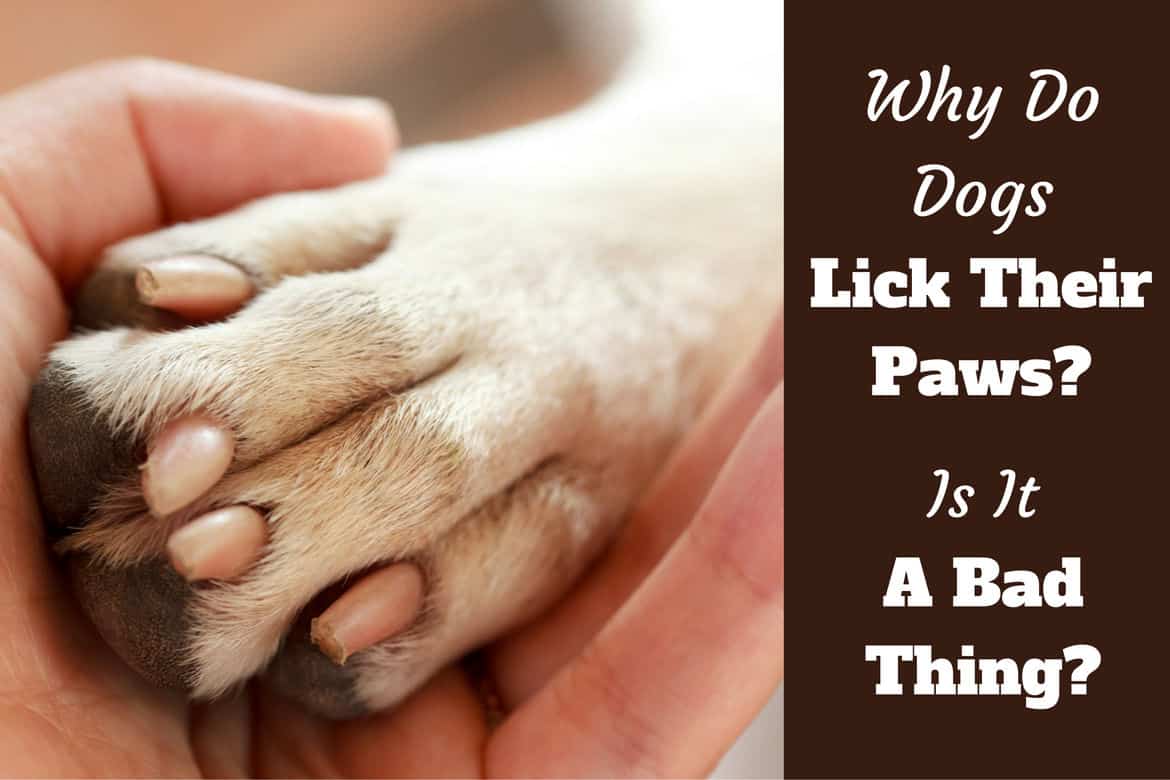Dogs are fascinating creatures, exhibiting a wide array of behaviors that often leave their owners pondering the reasons behind them. One such behavior that many dog owners notice is their furry friends licking at their paws. While it may seem like a harmless quirk, this action can signify various underlying issues or needs that might require attention. Understanding why dogs lick at their paws is essential for any responsible pet owner to ensure the health and happiness of their beloved companions.
From allergies to simple grooming habits, there are numerous reasons why dogs engage in this behavior. It's crucial to differentiate between normal grooming and excessive licking, which can lead to skin infections or other health problems. By paying close attention to this behavior, dog owners can respond appropriately and seek veterinary advice if necessary.
In this article, we will explore the various reasons behind the question, "Why do dogs lick at their paws?" We will delve into the psychological and physical factors that drive this behavior, helping you gain a better understanding of your canine companion's needs and well-being.
What Are the Common Reasons Dogs Lick at Their Paws?
There are several reasons why dogs may lick at their paws, and understanding these can help pet owners address any potential issues:
- Allergies: Dogs can suffer from environmental allergies, food allergies, or contact allergies, leading to itching and discomfort.
- Injuries: A cut, scrape, or other injury on the paw can prompt a dog to lick the area in an attempt to soothe it.
- Grooming Behavior: Dogs may lick their paws as part of their natural grooming routine.
- Stress or Anxiety: Licking can be a self-soothing behavior in response to stress or anxiety.
Can Allergies Cause Dogs to Lick Their Paws?
One of the most common reasons for excessive paw licking is allergies. Dogs can be allergic to a variety of substances, which may include:
- Pollens from grass, trees, and weeds
- Dust mites and mold
- Certain food ingredients, such as grains or proteins
- Chemicals in cleaning products or lawn treatments
When a dog comes into contact with an allergen, they may experience itching, leading to persistent licking as a form of relief. If you suspect allergies may be the cause, it is essential to consult with a veterinarian for appropriate testing and treatment options.
How Can You Tell If Your Dog Has an Injury?
Sometimes, dogs lick their paws due to an injury. To determine if your dog has a paw injury, look for the following signs:
- Swelling or redness in the area
- Visible cuts, scrapes, or puncture wounds
- Favoring one paw over the others when walking
- Excessive licking or chewing of the affected paw
If you notice any of these symptoms, it is crucial to address the injury promptly. Keeping the area clean and consulting your veterinarian for treatment can help prevent infections and promote healing.
Is Grooming a Natural Instinct for Dogs?
Grooming is a natural behavior for dogs, and paw licking is often a part of this routine. Dogs groom themselves to:
- Maintain cleanliness and hygiene
- Remove dirt and debris from their paws
- Distribute natural oils in their fur
While some licking is normal, excessive grooming can indicate other issues, such as stress or irritation. Monitoring your dog's licking behavior can help you determine if it's a typical grooming habit or a sign of an underlying problem.
Does Stress or Anxiety Play a Role in Paw Licking?
Yes! Stress and anxiety can significantly impact your dog's behavior, including excessive licking of their paws. Some common triggers for stress in dogs include:
- Changes in the household, such as moving or a new family member
- Separation anxiety when left alone
- Exposure to loud noises, such as thunderstorms or fireworks
In these cases, licking can become a coping mechanism for your dog. If you suspect your dog is licking their paws due to stress or anxiety, consider exploring behavior modification techniques or consulting a veterinarian for further guidance.
How Can You Help Your Dog Stop Excessive Paw Licking?
If your dog is excessively licking their paws, there are several strategies you can implement to help alleviate the behavior:
- Regular Vet Check-ups: Regular veterinary visits can help identify any underlying health issues that may be causing the behavior.
- Proper Grooming: Ensure your dog is groomed regularly to prevent dirt and debris from causing irritation.
- Identify Triggers: Pay attention to your dog's environment and identify any potential stressors that may be causing anxiety.
- Provide Mental Stimulation: Engage your dog with toys, puzzles, and activities to reduce boredom and anxiety.
What Should You Do If the Licking Persists?
If your dog's paw licking persists despite your efforts, it's essential to consult with your veterinarian. Persistent licking can lead to:
- Skin infections
- Hot spots (localized skin infections)
- Severe irritation or pain
Your veterinarian can provide a comprehensive evaluation and recommend appropriate treatments, which may include medications, special diets, or behavior modification strategies.
Conclusion: Understanding Your Dog's Needs
Understanding why dogs lick at their paws is crucial for ensuring their health and happiness. By being aware of the various factors that contribute to this behavior, you can take proactive steps to address any underlying issues and provide your dog with the care they need. Whether it's allergies, injuries, grooming habits, or stress, being attentive to your dog's needs will strengthen your bond and promote a happier, healthier life for your furry friend.
Article Recommendations
- Dustin Hurts Net Worth How Much Is He Really Worth
- Is Can Yaman Married Everything You Need To Know
- Get To Know Dario Griselda An Extraordinary Actor
:max_bytes(150000):strip_icc()/why-is-my-dog-licking-his-paws-3384908-5ca908a8d720458bb431fcc49ec0774a.png)

:max_bytes(150000):strip_icc()/why-is-my-dog-licking-his-paws-3384908_final-01-5bfc429346e0fb0051c336ab.png)